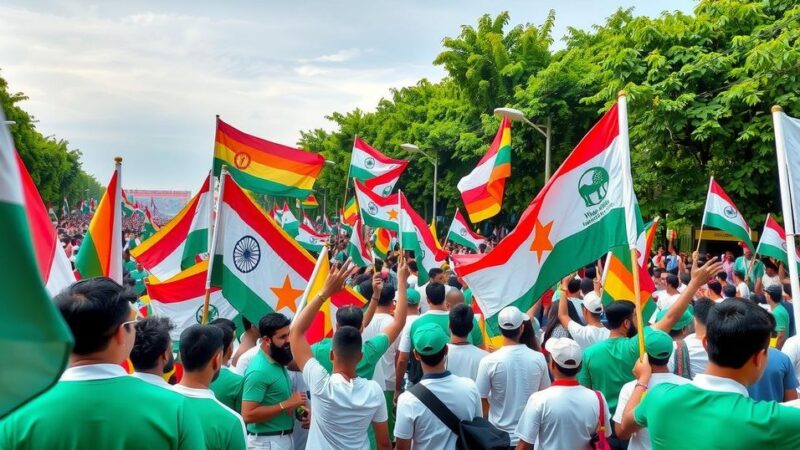Adeseye Ogunlewe calls for reforms in Nigeria’s electoral system, advocating collegiate representation to reduce election costs and improve governance. He addresses the rigidity of the constitution regarding state creation and legislative structure while emphasizing the critical role of youth education in fostering economic growth and security. Ogunlewe rejects notions of disunity and supports a unified political front for Nigeria’s future.
Adeseye Ogunlewe, a former senator from Lagos State and a prominent member of the All Progressives Congress (APC), advocates for significant reforms in Nigeria’s electoral process. He argues that creating additional states is futile and costly due to the inflexibility of the 1999 constitution. He emphasizes the need for a new electoral law to reduce the exorbitant costs associated with current electioneering practices.
In discussing Senator Natasha Akpoti-Uduaghan’s suspension, Ogunlewe refrains from judgment, stating that the matter awaits court resolution. He highlights a pattern of such suspensions in the National Assembly, suggesting that future incidents should similarly be resolved legally. Ogunlewe believes that existing methods should be refined rather than abandoned, and it is essential to allow the judiciary to clarify the situation.
Ogunlewe addresses concerns regarding the National Assembly’s perceived subservience to the executive branch, asserting that collaboration beneficial for governance should be encouraged. He stresses that the ruling party, APC, must work cohesively with the government to resolve internal disagreements rather than publicly contest them.
On the structure of the legislature, Ogunlewe defends the bicameral system, asserting its importance for Nigeria’s diversity, which necessitates multiple layers of representation. He expresses skepticism about advocating for a unicameral legislature, emphasizing the need for comprehensive representation in governance.
Ogunlewe acknowledges calls for constitutional reform but points out the constitution’s rigidity complicates amending it. He suggests incremental amendments rather than a complete overhaul should be prioritized, as a complete reformation may prove unattainable under current legal frameworks.
He further advocates for electoral reform to combat the pervasive influence of money in politics by proposing a collegiate electoral system. This would allow individuals contesting for the presidency or governorship to first run for legislative positions, thereby streamlining campaigns and reducing costs.
Addressing the maturity of Nigeria’s democracy, Ogunlewe acknowledges the challenges faced in political ideologies and party affiliations. He underscores the necessity of nurturing democratic values over time rather than expecting immediate transformations.
When questioned about state creation, Ogunlewe cautions against it due to the challenging constitutional processes involved, describing such initiatives as costly and time-consuming.
Regarding Nigeria’s security and economic prospects, Ogunlewe emphasizes the potential of the youth population. He advocates for prioritizing human resources by investing in education, particularly in producing qualified professionals such as doctors and engineers, which is vital for national development.
Ogunlewe asserts that enhancing educational opportunities would not only bolster the economy but also contribute to improved security by engaging youth in productive activities, thereby mitigating crime-related issues.
Finally, in response to sentiments of disunity in Nigeria, he dismisses secessionist thoughts and expresses confidence in generating significant public support for political initiatives, such as the Lagos for Tinubu 2027 campaign, reinforcing a united front for the future.
In summary, Adeseye Ogunlewe emphasizes the need for electoral reform in Nigeria, advocating for a collegiate system to reduce election costs and enhance political representation. He stresses the importance of a cooperative National Assembly, the potential of the youth population in economic development, and the necessity for gradual constitutional amendments. Furthermore, he firmly refutes separatist ideologies, indicating a commitment to fostering unity within the country as Nigeria progresses towards a more robust democratic future.
Original Source: businessday.ng






